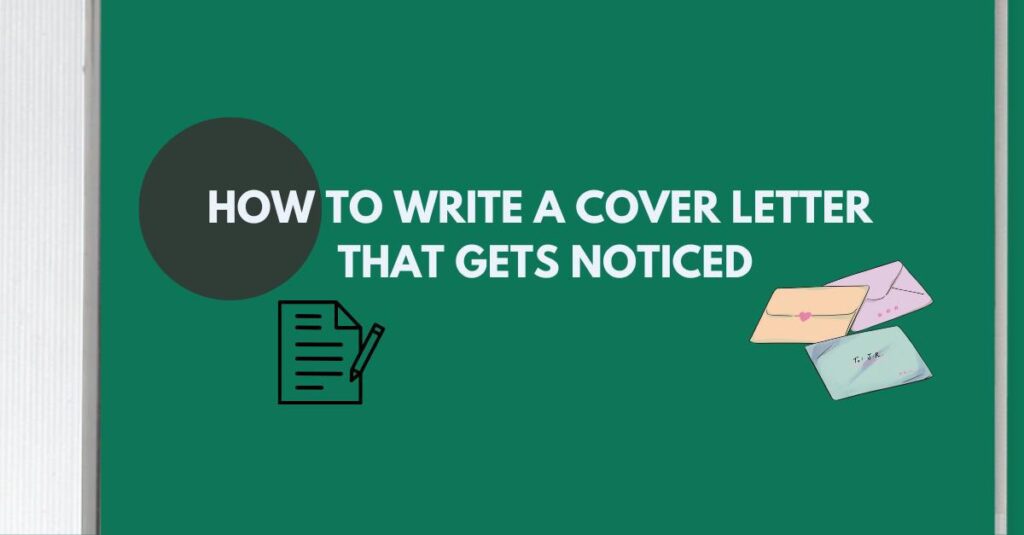
The first few lines of your cover letter should immediately capture the hiring manager’s interest. Avoid generic phrases like “I am writing to apply for…” Instead, start with a compelling introduction that highlights your enthusiasm for the role.
Example:
“As a passionate marketing professional with a knack for storytelling and data-driven strategies, I was thrilled to see the opening for a Digital Marketing Manager at XYZ Company. Your innovative approach to branding aligns perfectly with my expertise in social media campaigns and content creation.”
This opening sets the tone, showcases enthusiasm, and directly connects the candidate’s skills with the company’s needs.
1. Personalize Your Letter
A generic cover letter won’t get you far. Tailor your letter to the company and role you’re applying for. Mention the company name, its mission, or a recent achievement that resonates with you. Show that you’ve done your research!
Example: “I admire XYZ Company’s commitment to sustainability and innovative product design. Your recent campaign on eco-friendly packaging caught my attention, and I would love to contribute my expertise in brand storytelling to further enhance your impact.”
This approach makes the letter feel personal rather than a copy-paste submission.
2. Highlight Your Value, Not Just Your Experience
Rather than repeating your resume, use your cover letter to show how your skills will benefit the company. Focus on achievements, impact, and results rather than just listing responsibilities.
Example: “At ABC Corp, I led a social media campaign that increased engagement by 35% in just three months. By implementing a targeted content strategy, we also saw a 20% boost in website traffic. I am excited to bring this level of creativity and analytical thinking to your team.”
Quantifiable achievements make your application more persuasive and memorable.
3. Keep It Concise and Well-Structured
A great cover letter is one page long and follows a clear structure:
• Introduction: Why you’re excited about the role.
• Body Paragraphs (1-2): Your key skills and achievements.
• Conclusion: A strong closing statement with a call to action.
Avoid long paragraphs—keep sentences clear and to the point.
4. End with a Strong Closing Statement
Close your letter with confidence and a clear next step. Instead of saying “I hope to hear from you soon,” take a proactive approach.
Example: “I would love the opportunity to discuss how my experience can contribute to your team’s success. Let’s schedule a time to connect—I am available at your convenience.”
This shows initiative and professionalism.
Final Tips:
✔ Use a professional yet friendly tone – Avoid robotic language, but stay professional. ✔ Proofread carefully – Spelling or grammar mistakes can cost you the job. ✔ Match your tone to the company culture – A creative agency may appreciate a more casual style, while a law firm may expect a formal approach.
Conclusion
A well-crafted cover letter is your chance to stand out and make a compelling case for why you’re the perfect fit for the job. By personalizing your letter, showcasing your impact, and keeping it concise, you’ll increase your chances of landing an interview.

